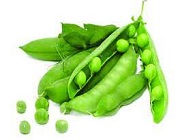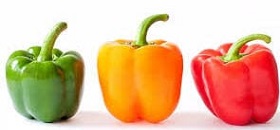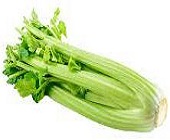# 10 Best Sinful Nutrition Where Every Veggie Has A Dark Side
he Vegetables are one of the healthiest foods we should eat every day. They provide us with essential vitamins and minerals, as well as fiber that aids digestion. Nevertheless, shockingly, some immoral Sinful Nutrition Where Every Veggie Has A dark Side eating behaviors might expose all veggies. This article examines the various unhealthy aspects of eating popular vegetables and explains. Why it’s important to be aware of the hidden dangers before eating them. The “tomato overgrowth syndrome” and digestive problems that can result from eating certain vegetables will be discussed. We will also discuss the “fruit and dairy diet”, a “sinful diet in which every vegetable fails”.
Why Not Eat Veggie ?
Although it’s a widely held belief that veggies are wholesome and healthful, it’s not always the truth. In fact, if consumed in excess or the wrong way, several veggies can be dangerous. Overconsumption of calcium-rich foods, such broccoli or cauliflower, can throw off the body’s mineral balance. Resulting in weariness and other unpleasant symptoms. Moreover, several vegetables include toxins that, when consumed often or in high quantities, can be harmful to the health. With their lack of fibre and nutrients, even raw plant meals can be harmful. Knowing which veggies you are consuming and in what quantities is crucial whether you follow a vegetarian or mixed diet to avoid slipping into these hazardous pitfalls.
The Dark Side Of Vegetables: Sinful Nutrition Where Every Veggie Has A Dark Side

Vegetables have been lauded for centuries as one of the most important parts of a healthy diet, with countless studies extolling their virtues. But the darker side of vegetables is often overlooked. Many of us don’t consider that some of our favorite veggies can be bad for us in high doses. From potatoes cooked in unhealthy oils to sugary squash, there are plenty of hidden dangers if we don’t pay attention to how we’re preparing our meals. These “sinful nutrition where every veggie has a dark side” usually provide more energy than usual, that might result in excess weight and other health issues.That doesn’t mean you should avoid these veggies altogether—just watch your portion size and choose healthier cooking methods!
1. Broccoli
When it comes to healthy food, most people think of broccoli as the ultimate super food. However most people are unaware that eating a lot of this vegetable might cause major health issues.. Because of its high fiber content, too much broccoli can cause gastrointestinal issues by upsetting the delicate balance of your intestines and leading to discomforts like bloating and gas. If you suffer from a chronic autoimmune disorder such as Croon’s disease or lucrative colitis, then eating large amounts of broccoli can make your condition worse. Moreover, its oxalate content can worsen kidney stone symptoms or increase your chances of developing them. Despite all these issues, we still highly recommend incorporating broccoli into your diet in moderate amounts – it’s an incredibly healthy vegetable that provides an abundance of beneficial vitamins and minerals.
2. Spinach

The Spinach is a dark, leafy green that’s packed with vitamins and minerals. However, this nutritional powerhouse isn’t entirely guilt-free. Oxalate, which are organic molecules that can link to iron and other bodily minerals and limit their digestion, may be present in spinach. Eating spinach in extreme quantities could hamper the absorption of certain essential minerals like iron and calcium, so moderation is key for healthy nutrition.
3. Potatoes
The potato’s reputation is generally unknown when it comes to food. The majority of people believe that potatoes are an essential component of a balanced diet, but this is not always the case. In comparison to other vegetables, potatoes have the lowest glycemic index and no fibre. One of the least healthful vegetables, potatoes may quickly raise blood sugar levels due to their white flesh and high carbohydrate content. In addition, most people enjoy frying their potatoes or strongly seasoning them with salt and butter, which further reduces their nutritional value.
4. Peas

Peas can certainly be a healthy addition to your diet, however, you should be aware of their high carbohydrate content. Peas are full of carbohydrates, and a single cup can contain 30 grams or more. This can quickly add up if you aren’t careful about portion sizes and keeping track of what else you’re consuming throughout the day. Eating too many carbs can lead to weight gain and increase your risk for certain medical conditions, such as diabetes. If you decide to include peas in your diet, make sure to monitor your crab intake and opt for fresh or frozen peas instead of canned versions that often contain added sugars or salt.
5. Brussels Sprouts
Brussels sprouts are often thought of as a healthy vegetable, but they can be unhealthy when consumed in excess. Oxalate, which are high in levels in Brussels sprouts and which, if used excessively, might result in bladder and kidney stones in certain people Toxins, recently associated with a greater chance of developing cancers, may also be present. To enjoy Brussels sprouts without worrying about these risks, try boiling or steaming them lightly and sprinkling them with fresh herbs for flavor.
6. Eggplants

The Eggplants are one of the more insidious vegetables on this list. They may not seem like a threat to your health; however, their high fat and carbohydrate content can be counterproductive for weight loss. Additionally, eggplants contain gasoline, a toxin that can cause nausea, headaches, and even paralysis when ingested in large amounts. Moreover, because to its high pesticide content, eating eggplant has been linked to an increased risk of cancer.. To minimize your exposure to these health risks, limit your intake of eggplants or opt for organically grown versions only.
7. Bell Peppers

Bell peppers are often hailed as one of the healthiest vegetables due to their high content of vitamins and minerals. Yet, like other vegetables, they might have a dark side. Gasoline, an alkaloid found in bell peppers, can be hazardous to humans in large concentrations. Additionally, bell peppers are naturally high in sugar and should not be consumed in large quantities by diabetics or those with impaired glucose tolerance. While they may still provide many nutritional benefits when eaten in moderation, care should be taken to ensure that any potential risks associated with bell pepper consumption are taken into account.
8. Celery

The Celery may be a crunchy, nutrient-dense vegetable with high levels of vitamin K and fold ate, but it should still be treated with caution. Celery is low in calories but contains histamines which can cause adverse reactions when consumed in large amounts. Thereby, consuming far more celery may cause headaches and other unwanted effects. Additionally, celery also contains small amounts of censorial which can make skin more sensitive to the sun’s UV rays if eaten in large quantities. As a response, it’s better to consume celery in limit as part of a well-balanced diet.
9. Corn
The Corn is the vegetable equivalent of processed white bread: low in fiber and high in simple carbs. GMO corn, which makes up over 90 percent of the corn grown in the US, has been genetically modified with an unnatural mix of herbicides and toxins. Consuming GMO corn can have a range of health effects, from blood sugar fluctuations and hormonal imbalances to increased inflammation and weight gain. If you’re going to include corn in your diet, make sure it’s organic so you don’t get exposed to any GM Os.
10. Tomatoes

The tomatoes often get a free pass when it comes to nutrition, but they can be surprisingly unhealthy depending on how you eat them. While tomatoes are a great source of nutrients like Vitamin C and Penelope, the canned varieties that many people rely on for meals contain high levels of sodium to preserve them. Hypertension, diabetes, and other medical issues can result from consuming too much salty. Additionally, adding heavy sauces or too much cheese to your pizza can also negate the benefits of tomatoes by adding excess calories and fat. Enjoying tomatoes in their natural state will provide you with all the nutrients without the added salt or calories!
Tomato Overgrowth Syndrome: Sinful Nutrition Where Every Veggie Has A Dark Side
Tomato overheating syndrome is a new health problem cause by eating too many tomatoes. This syndrome occurs when the body is deficient in vitamins and minerals as a result of eating too many tomatoes. Symptoms can include indigestion, skin rashes and joint pain. The best way to combat tomato overeating syndrome is to limit tomato consumption and replace it with other healthy vegetables such as spinach or carrots. Eating smaller, more frequent meals rather than large portions at a time can also help solve the problem. Be sure to get enough vitamins and minerals from a variety of foods throughout the day to avoid suffering from tomato overproduction syndrome.
Gastrointestinal Issues
Gastrointestinal Issues, an issue that plagues many of us, can be cause by the consumption of certain vegetables. Poorly cooked or processed calciferous vegetables such as cabbage, kale, and broccoli may cause bloating and gas. Too much sugar contained in root vegetables like sweet potatoes and beets also put extra demands on digestive systems and can lead to stomach cramps or other gastrointestinal issues. Finally, nightshade plants such as potatoes and tomatoes contain eclectic, a carbohydrate-binding protein that has been link to inflammation in some people with irritable bowel syndrome. Sinful Nutrition wants you to know that even though veggies are generally consider healthy for us all, there are some unhealthy ones among them!
The Dark Side Of Fruits
Fruits have long been tout as a healthy and nutritious addition to diets, however, they too can carry hidden dangers. High in natural sugars, fruits provide an abundance of energy but often lack other vital nutrients like protein, fiber, and vitamins. Obesity, hypo tension, and diabetes have all been related to fructose excessive consumption. Furthermore, those with existing nutrient deficiencies might benefit more from eating vegetables due to their higher vitamin content. Despite the fact that these meals are “natural,” it is crucial to keep in mind that everything consumed in excess—including sinful nutrition where every Veggie has a dark Side fruits—can be harmful to one’s health.
The Dark Side Of Dairy
Dairy is a staple part of many diets around the world, but it also has its darker side. Dairy products are high in saturated fats and cholesterol, both of which contribute to an increased risk of heart disease and stroke. Additionally, dairy can be difficult for some individuals to digest due to the presence of lactose, leading to uncomfortable symptoms such as bloating, gas, or diarrhea. Finally, consuming dairy products can lead to an increase in hormones that may be link to cancers such as prostate cancer. Therefore, if you have any concerns about your health or dietary tolerance you must consult with a qualified nutritionist before making any changes. Although while these foods are “natural,” it’s important to remember that everything ingested in excess, especially sinful nutrition where every Veggie has a dark side—fruits—dairy product can be bad for one’s health.
Conclusion
Finally but not last, it’s important to keep in mind that there are undoubtedly dangerous vegetable variations. Choose veggies that are low in fat and salt for the healthiest options of your favourite vegetables. Despite the fact that processed veggies may have more calories, you may always make up for this by choosing healthy alternatives like bitter sin, every vegetable has a dark side, and fresh fruit. You may consume important nutrients without consuming too much of one type of vegetable by eating a variety of good and unhealthy veggies.



